
Biggest US Pension’s Investment Boss Pushed Sports Deals Before Calling It Quits
In her first year atop the California Public Employees’ Retirement System as chief investment officer, Nicole Musicco gathered
1970-01-01 08:00

‘Very rich, very famous, and very powerful’: How Bernard Tapie became France’s first tycoon – and wound up in prison
If you’ve grown up in France, Bernard Tapie is one of those people you’ve always been aware of, without being able to remember when you first heard about them, or what they’re currently famous for. In Tapie’s case, the answer varied throughout the years: at times, he was famous for his career as a businessman; at others, for his career in the world of sports. There was also politics, show business, and legal scandals, depending on when you asked. Only one constant remained: from his rise to fame in the 1980s to his death in 2021, Tapie was notorious. A new Netflix series dramatizes 30 years of his life, charting his humble beginnings, his not-so-humble early successes, and the biggest legal controversy of his life—for fixing a soccer game in favour of Olympique de Marseille, Marseille’s soccer team, which he then owned. In France, the show is simply called Tapie—a name known to virtually anyone. In the US, it’s titled Class Act, an apparent wordplay to nod both to Tapie’s exceptional destiny and to his status as what sociologist Pierre Bourdieu called a “transfuge de classe”—someone who moves from one social milieu to another. The show, comprising seven episodes, is a fascinating examination not just of the man himself, but of the country that allowed his ascent. It casts an eye back on the lionized men of the 1980s and asks: at what cost did we create them? And what are we meant to do with them now? “In the same way that there was Trump in the US, Berlusconi in Italy, there was Tapie in France,” Tristan Séguéla, who directed and co-wrote the series, tells The Independent in a video call. “The 1980s had a strong mythology around these characters who could embody everything, and who were very rich, very famous, and very powerful all at once.” Bernard Tapie was born in 1943 in Paris. His father was a laborer, his mother a nurse’s aide. He first sought fame as a performer, then in business. In the 1960s, he won a televised singing contest under the name Bernard Tapy—a much more American-seeming spelling of his last name. But that success was short-lived, and Tapie soon transitioned to selling televisions for a living. In the late 1970s and through the 1980s, he became known for purchasing companies on the verge of bankruptcy and reselling them for considerable profit. In the 1990s, he entered politics, as a member of President François Mitterrand’s government and as a Congressman. That same decade, he bought and sold the athletic apparel brand Adidas. The 1990s also saw Tapie’s biggest legal controversy: in 1995, Tapie was sentenced to eight months in prison for bribing members of the opposite team to ensure Marseille’s victory in a final match against Valenciennes. (Tapie had become the president of the Marseille team in 1986.) All of those events are depicted in Tapie. In real life, the story goes on, with more legal troubles (Tapie was sentenced to six months in prison for tax fraud in 1996) and more reinventions. To go through Tapie’s biography is to go through the story of a man who never retreated into anonymity and never stopped believing that the system would, in one way or another, bail him out. In the late 1990s and 2000s, he turned to acting and TV host gigs. In the 2010s, he became the owner of a media company. Tapie was diagnosed with stomach and esophagus cancer in 2017. He died of the disease in October 2021, aged 78. The actor Laurent Lafitte, who brilliantly portrays Tapie in the Netflix series and developed it with Séguéla, has spent time pondering Tapie’s story and what it represents. Tapie, he says in a phone call, was “a kid from the suburbs” raised in part by a Communist father. He views Tapie in that way in opposition to Trump, who long claimed to have received a “small” $1m loan from his father, “as if that were $10”, Lafitte says. Not only that, but that number is substantially false; Fred Trump’s financial support of his sum extended far beyond that sum. Tapie “did not have the same starting point as Trump at all”, Lafitte says, which, in his view, renders Tapie’s boundless ambition more palatable. But he is clear about Tapie’s “ultra liberalism”, and the way capitalism enabled his ascent: Tapie “bought failing companies and brought them back to financial health without concerning himself for the employees’ social wellbeing,” he says. Back in the 1980s, Tapie’s open ambition was considered “novel in France, where we have a rather discreet, reserved rapport with success, and especially with money.” In Tapie, Lafitte says, “we had someone who brandished material success as an absolute accomplishment.” The French language sometimes borrows words from English wholesale, not bothering to come up with a translation. “Fun”, for example, does not have a French equivalent. French people simply say “fun” with a French accent and carry on as usual. “Weekend” is another example. The words used to describe Tapie at various points in his career, Lafitte points out, do not have equivalents in French—there is no French word for “tycoon”, “self-made man”, or even “success story” (if one chooses to see Tapie that way). “These are English words that represent a kind of ultra liberal success that wouldn’t have been shocking for Americans, nor perhaps for some British people, back in the days,” Lafitte says. “But in France, it was really new.” Each episode of Tapie, the series, opens with a disclaimer that states the show is “inspired by real facts”, namely the big parts of Tapie’s life that were already known to the public. The show then takes liberties, imagining various scenes, giving viewers an interpretation of Tapie’s life rather than a date-by-date account. “Fiction worked [in the show] in the service of reality,” says screenwrite Olivier Demangel in a video call. He cites the German philosopher Theodor W Adorno, who, in reference to the works of Honoré de Balzac, wrote about “realism by way of losing reality.” “To me, that’s exactly it,” Demangel says. “[Adorno] was talking about Balzac, but we’ve always thought that Tapie had something of a Balzac character.” Not that the show is entirely disconnected from reality. To research the show, the team read around 40 books, Demangel says, and dug into television archives. “We really worked on the idea that Tapie was kind of the embodiment of television,” Demangel says. “Like a TV salesman who wanted to get inside the machine, and who sort of became television. We realized that he went through every television format, and that he had his downfall at the same time the world moved on to the internet. It’s as though the internet killed the world and Tapie.” Séguéla brought another real-world perspective: his father, Jacques Séguéla, was a prominent French publicist, and a friend of Tapie’s. The younger Séguéla has childhood memories of Tapie spending part of his vacations at the Séguélas’ house. “I remember someone who attracted attention,” he says. “And [Tapie] had one quality—I think it’s the same way with the friends of everyone’s parents: There are those who pay attention to kids, and those who don’t notice them. [Tapie] treated everyone equally, adults and children. I liked that, especially since he was already a media monster by the time he came by. I’d see him on TV, and then I’d see him make paella for everyone. And sometimes, we’d quarrel, too. He would argue with me about a bit of the Tour de France, or soccer teams. I liked that too.” Despite this personal connection, Tapie, before his death, had voiced his opposition to the series. More recently, his family voiced their objections, too. But that was never a problem for Séguéla, nor Lafitte, nor Demangel. They were determined to write the show, and they didn’t particularly want Tapie or his relatives to contribute to the writing. Years ago, Séguéla made it clear to Tapie that he wasn’t seeking his permission to go ahead, Tapie “left him alone” and let him work in peace, Séguéla says. “It would have annoyed me if he’d felt hurt by the show, if he’d found it insulting or defamatory,” Lafitte says. “But I was comforted by the fact that our work was mainly impartial.” Despite the differences between Trump and Tapie, the team too had Trump on the mind while crafting the show. “I would even say that Tapie must have had Trump on his mind during his own rise to fame,” Séguéla says. Tapie, Séguéla points out, published a nonfiction book called Gagner (“to win”), a cross between a memoir and a book of business tips. Tapie’s book came out in 1986. Trump’s own book, The Art of the Deal, came out in 1987—three years after Trump appeared on the cover of GQ. The 1984 cover story was titled: “Success: How Sweet It Is. Men Who Take Risks and Make Millions.” Now, Lafitte struggles to imagine France’s other wealthy men, such as businessmen François-Henri Pinault or Bernard Arnault sing on TV or host a show—both things Tapie did. Still, Tapie’s story as told in the Netflix series seems inseparable from France itself. In Tapie’s tale, Lafitte sees “all the contradictions” of the country’s attitudes to success. “In France, we always tend to be wary of people who succeed materially,” he says. “[Tapie’s story] is the story of a time when the line became a bit more blurry, between [the traditional French mindset] and a more American mindset. He understood that very quickly.” Read More Like Harry, they wrote brutally honest memoirs about their families. What happened next? From Harry Styles to Emma Roberts: How celebrity readers became the book influencers we didn’t know we needed Slim Aarons started out photographing war – but his greatest assignment was in the trenches of fashion Hurricane Nigel expected to ‘rapidly intensify’ by Tuesday - latest Trump says he doesn’t worry about jail risk as he refuses to rule out self-pardon Front door of home where Sharon Tate was murdered sells for $127k
1970-01-01 08:00

Ukraine sues EU neighbours over food imports ban
Kyiv says Slovakia, Poland and Hungary act illegally - but they say they need to protect their farmers.
1970-01-01 08:00
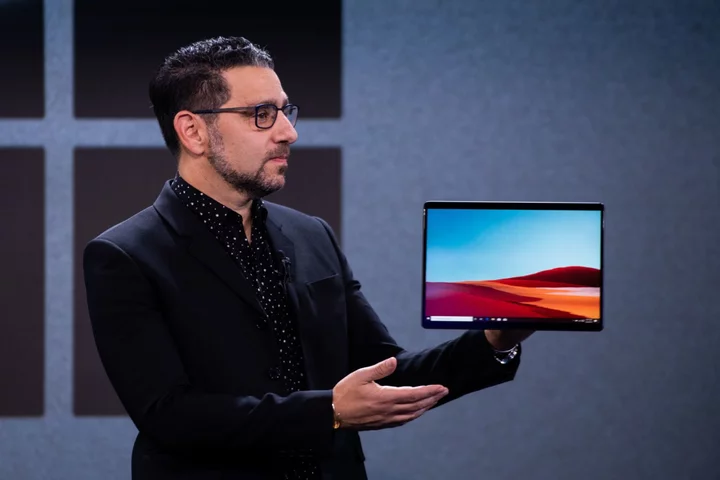
Amazon Is Poised to Hire Departing Microsoft Product Chief
Amazon.com Inc. is hiring Microsoft Corp.’s product chief to run the division responsible for Alexa and the Echo
1970-01-01 08:00
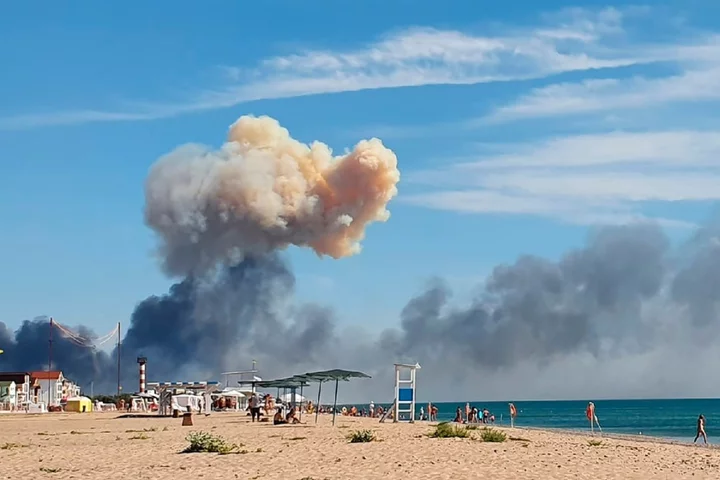
How Ukraine’s battle for the Black Sea is inflicting serious pain on Putin’s forces
Russian warships patrol the surface of the Black Sea, launvhing missiles at Ukrainian cities and towns as part of a near-daily assault. While also enforcing a de-facto blockade, leaving ships in little doubt of he consequences if they try to break it. Such is the importance of this shipping route for both sides. For along time Russian ships moved with relative impunity. And a grain deal that alllowed Ukraine to export from its ports on the Black Sea allowed for an uneasy status quo to hold. But after Moscow withdrew from that deal in the summer and stepped up attacks on Ukraine’s ports, and Kyiv began a counteroffensive to retake land occupied by Russia in sourthern and eastern Ukraine – the Black Sea has become one of the most active fronts in the war. For weeks, Kyiv has been sending a new class of sea drone – essentially unmanned speed boats packed with explosives that can travel many miles – seeking to create havoc and disrupt as much of Moscow’s war machine as it can to help the forces on land. The boats can reach speeds of up to 50mph and can carry a payload of explosives of up to 300 kilograms, according to reports. It is the type of innovative warfare that Kyiv has repeatedly used to push back against a far larger military force. These sea drones have been backed up by missile strikes, including using long-range Storm Shadow missiles from the UK. The most recent scalp? What is believed to be the largest Ukrainian attack on the headquarters of Russia’s Black Sea fleet since the start of Vladimir Putin’s invasion. Kyiv said that the attack on the base in the city of Sevastopol in Russian-occupied Crimea struck a submarine – which analysts suggested was likely a Kilo-class attack submarine that can launch cruise missiles of its own – and a landing vessel. It is thought that this is the first documented successful attack against a Russian submarine during Moscow’s 18-month war. Before that, Ukrainian special forces regained control of a number of oil and gas drilling platforms that Russia has used to help control the Black Sea in a “unique operation”, the country’s military intelligence (GUR) said. The UK’s Ministry of Defence has previously said the platforms could be used to launch helicopters, position long-range missile systems and as a base for forward deployment. ”Russia has been deprived of the ability to fully control the waters of the Black Sea, and this makes Ukraine many steps closer to regaining Crimea,” the GUR said. Meanwhile, two commercial ships have docked at a Ukrainian port in recent days as Kyiv steps up efforts to unilaterally break Russia’s blockade, using a corridor hugging the Black Sea coast of its southern neighbours and Nato members Romania and Bulgaria. Keir Giles, a senior consulting fellow of the Russia and Eurasia Programme at the Chatham House think tank, said the focus on the Black Sea by Ukrainian forces was a “relative change” and they aren’t “abandoning things they are doing on the front line in the east.” He said: “There are more noticeable things happening now that operations against Crimea are picking up pace. But that’s after a long period of preparation. “We saw earlier the attacks by missiles and special forces landing to reduce Russia’s air defence capability in Crimea and now as a result of that they [Ukrainian forces] can carry out those other operations that rely on those air defences being ineffective. “And that’s why we’re seeing this uptick in the pace... It’s also part of the process of eroding Russia’s sustainability of its hold on Crimea... making it so it will eventually be untenable.” As well as the strategic importance of the Black Sea, there is a symbolic element that can prove a powerful tool. Russia’s annexation of Crimea in 2014 is soemthign that Kyiv has been seeking to avenge for a long time. Hence the talk from Ukrainian officials about the retaking of Crimea being a long term goal (as well as the rest of the territory Russia has occupied during its current invasion). For Russia – and Putin in particular – there is also deep sumbolism in Crimea and the Black Sea. “It is a means by which they can throttle Ukraine, throttle its economy. As soon as they seized Crimea in 2014 it immediately compromised Ukraine’s ability to be able to trade and access the Black Sea from all of its eastern ports,” Giles says. “So from Crimea, Russia can project power over enormous distances, its a kind of outpost of Russian military power,” he added. Giles adds: “Ukraine doesn’t need control of the Black Sea to survive, it needs access to the Black Sea to survive. It’s needs the resumption of peaceful shipping without constantly being under threat from Russia. “That unfortunately is not a problem that will go away with the active phase of fighting in Ukraine. That’s one of the reasons why the idea of bringing the actual fighting to an end in a negogiated settlement with Russia is so fraught, because it means Russia can hold the Ukrainian economy hostage, by keeping that strangehold on its ports, particularly if it remains in control of Crimea.” Kyiv has repeatedly said that any peace settlement would need to include the return of all Ukrainian territory. We can expect Ukrainian attacks on the Black Sea and the Russian fleet in the area to continue. It is a way of keeping the pressure on Moscow while ground troops battle for every bloody inch on the fronlines in southern and eastern Ukraine. Any big hits, such as the recent one on the kilo-class submarine provide a propaganda boost as well as harming Russian capacity. Neither Kyiv or Moscow will want to cede anything in the Black Sea, so this will become an increasingly important part of the war. Read More Ukraine-Russia war – live: ‘Significant losses’ for Putin’s troops as Kyiv’s offensive retakes another village Putin meets the leader of Belarus, who suggests joining Russia's move to boost ties with North Korea Kim Jong-un unexpectedly extends visit to Russia as he gleefully tours more weapons facilities The Body in the Woods | An Independent TV Original Documentary The harrowing discovery at centre of The Independent’s new documentary
1970-01-01 08:00

Activision Executives Were Briefed on New Nintendo Switch Last Year
Activision Blizzard Inc. executives were briefed on a next-generation console from Nintendo Co. as early as 2022, according
1970-01-01 08:00

Coffee Extends Gains as Extreme Heat Threatens Brazilian Crop
Coffee prices rose for a third straight day as extreme heat in top supplier Brazil brings risks to
1970-01-01 08:00

How Many People Play Apex Legends in 2023?
Apex Legends' average monthly player count hovers around 65,000,000 players in 2023, with over 66,000,000 people playing Apex Legends in August 2023.
1970-01-01 08:00
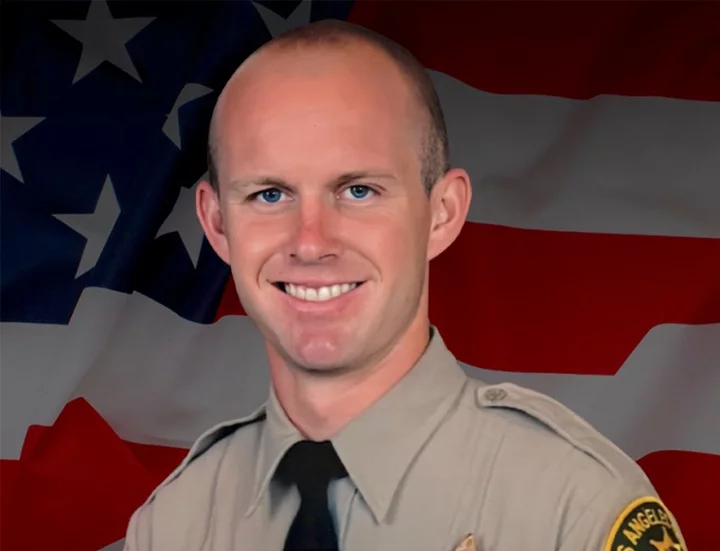
Person detained in ‘ambush’ killing of LA sheriff’s deputy
A person has been detained in connection with the fatal shooting of a Los Angeles County sheriff’s deputy who was shot over the weekend in what authorities say was a targeted killing. Deputy Ryan Clinkunbroomer, 30, was on duty Saturday night and sitting in his patrol car at an intersection in Palmdale, California, when he was ambushed, Sheriff Robert Luna said in an earlier press conference. “He ambushed and killed — murdered — one of our deputies,” Mr Luna said, describing the suspect as a “public safety threat.” The sheriff announced on Twitter Monday morning that a person has been detained, but further details were not immediately available. A press conference is set for later today. Police said there was video that captured a vehicle described by Mr Luna as a 2006 to 2012 dark grey Toyota Corolla driving next to Clinkunbroomer’s patrol vehicle at the time of the 6pm shooting. The sheriff released photos, calling it a “vehicle of interest.” Mr Luna added that Clinkunbroomer had gotten engaged just four days before the incident. “He was just starting his life,” the sheriff said. The sheriff also released a statement on Facebook, writing that the “eight-year veteran of the LASD” was “senselessly murdered tonight.” “From everything I know about Ryan, people absolutely loved and adored him. He wasn’t just one of our Deputy Sheriffs. He was a third generation deputy. His father and grandfather served with us,” the statement read. “Service was running through his veins. He embodied the values of bravery, selflessness and was committed to justice. Our deputy was a devoted family member and a cherished community member. He was cowardly shot while working tirelessly to serve our community this evening,” the sheriff added. Read More LA sheriff’s deputy shot dead inside patrol car in targeted ‘ambush’ days after marriage proposal A Mississippi jury rules officers justified in fatal 2017 shooting after police went to wrong house Minnesota man acquitted of killing 3 people, wounding 2 others in case that turned alibi defense
1970-01-01 08:00
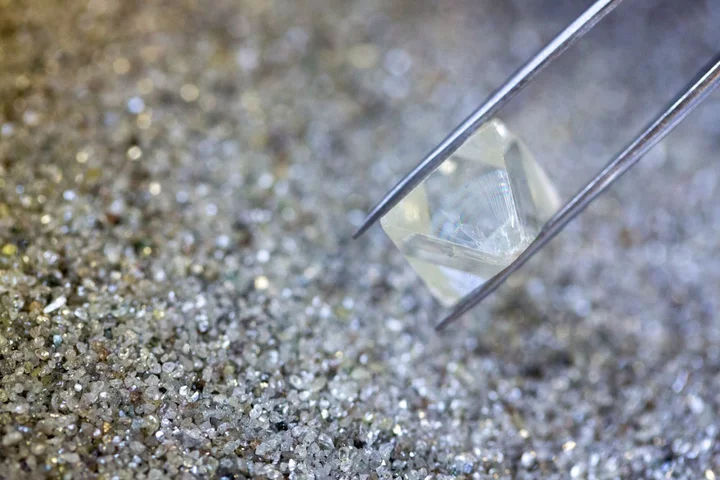
EU Braces for Tussle Over 12th Russian Sanctions Package
The European Union is gearing up for a fight over what should be included in its 12th package
1970-01-01 08:00
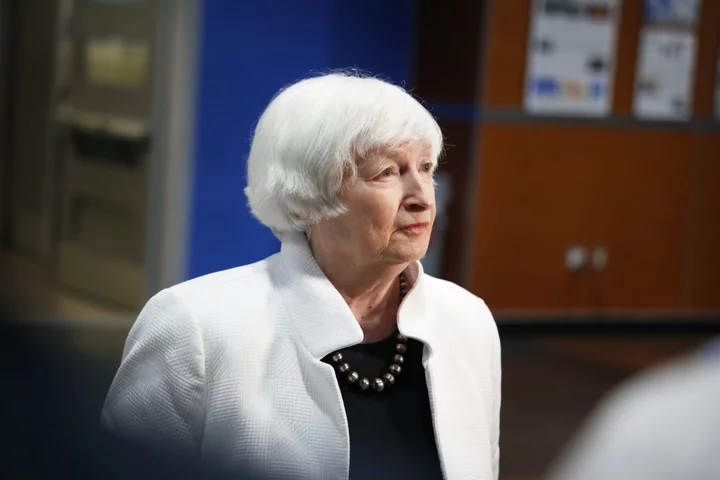
Yellen Says Premature to Judge Auto Strike Impact, Wants Win-Win Deal
Treasury Secretary Janet Yellen said it’s too soon to tell what economic impact there my be from the
1970-01-01 08:00
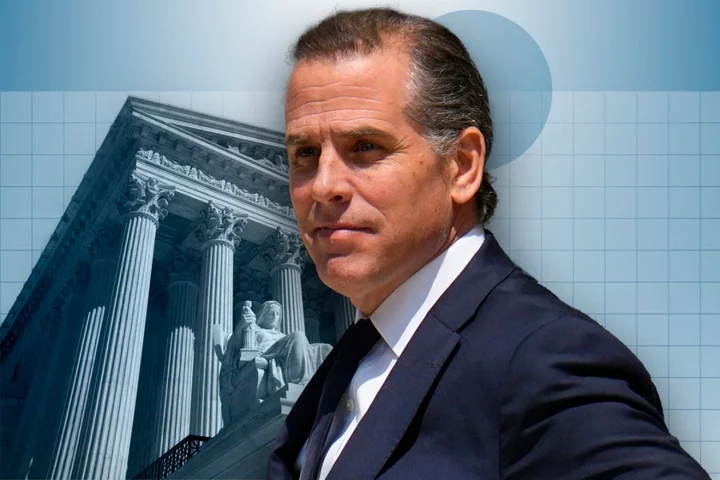
Is Hunter Biden’s gun case a test for the Second Amendment?
Following a five-year federal investigation, a grand jury has indicted President Joe Biden’s son Hunter Biden on three charges connected to a gun purchase in 2018, a time period during which the president’s son has admitted to using drugs. Federal law prohibits people who use drugs from buying firearms, but questions surrounding the constitutionality of that law could throw the case into jeopardy following a landmark US Supreme Court decision that opened a wave of litigation under the court’s expansive Second Amendment lens. That’s if the case survives the political maelstrom targeting the Biden family, with congressional Republicans eager to prosecute the president’s son and impeach his father in parallel probes separate from a US Department of Justice special counsel investigation facing GOP pressure. That partisan scrutiny comes as the leading candidate for the 2024 Republican nomination for president faces four sprawling criminal trials of his own, including charges for serious crimes allegedly committed while serving as 45th president. Republican officials and campaigns are eager to draw a false equivalence and dominate airtime with investigations surrounding the younger Biden instead. Ironically, a Supreme Court decision celebrated by Republicans last year may have set a precedent that could protect Hunter Biden from prosecution. The Gun Control Act of 1968 prohibits people who use drugs from possessing firearms, a ban that applies to people who have admitted to using illegal drugs within 12 months before buying a gun, according to the US Bureau of Alcohol, Tobacco and Firearms. Violating that provision could land an offender with a 15-year prison sentence. But the Supreme Court’s decision in New York State Rifle & Pistol Association v Bruen – decided by the court’s six conservative justices – argues that such restrictions be historically consistent with the Second Amendment. As Justice Clarence Thomas wrote, “the government must demonstrate that the regulation is consistent with the Nation’s historical tradition.” The decision created an absurdly high new burden to test the constitutionality of restrictions and other safety measures to combat the proliferation of high-powered firearms and keep them out of the hands of people who could be a danger to themselves or others in the American era marked by daily mass shootings and surging rates of gun violence, analysts and advocates have argued. President Biden has said the decision “contradicts both common sense and the Constitution.” Within a year after that decision, more than a dozen state and federal gun laws have been challenged, with 30 per cent of civil cases and nearly 4 per cent of criminal cases citing the Bruen decision in challenges that have invalidated gun control measures, according to research in Duke Law Journal. This year, federal judges in several cases have ruled that banning someone who uses drugs from owning a firearm is “inconsistent with the Nation’s historical tradition of firearm regulation.” “In short, our history and tradition may support some limits on an intoxicated person’s right to carry a weapon, but it does not justify disarming a sober citizen based exclusively on his past drug usage,” Ronald Reagan-appointed US District Judge Jerry Smith wrote for a federal appeal courts panel in August. “Nor do more generalized traditions of disarming dangerous persons support this restriction on nonviolent drug users.” Hunter Biden is charged with illegally owning a gun as a drug user, and with allegedly lying on a form when he bought the firearm. If convicted, he could face up to 25 years in prison, though it is highly unlikely he would face such a sentence. Jacob Charles, a professor at Pepperdine University’s Caruso School of Law and a constitutional law scholar focusing on the Second Amendment, said Mr Biden’s attorneys likely have a viable Second Amendment case. It might be more difficult to challenge federal law against lying on a firearms form, which is not directly tied to Second Amendment rights, “so it’s possible that an appeals court or the Supreme Court would agree with the defense on both of the questions, and say it’s unconstitutional, and since it’s unconstitutional, you also can’t be punished for lying about the other category,” Mr Charles told The Independent. Essentially: if one count is on unconstitutional grounds, there’s a chance the other counts wouldn’t stand up either. “It’s not always the case that the higher profile the defendant, the more likely you’re going to get Supreme Court review,” he said. “Sometimes it seems to happen lately. But there are other cases that are farther along in the process that are challenging this same law, that if the court really wanted to answer this question, it wouldn’t have to use the Hunter Biden vehicle to do it.” Mr Charles says the case has underscored the “disruptive effects of the Supreme Court’s decision in Bruen” and the chaotic new landscape for the nation’s myriad gun laws, which now have an apparent historical analogy regardless of the urgency for such laws in the first place. This year, the Supreme Court will hear oral arguments in a major Second Amendment test that further magnifies the chasm between the new historical test and current realities, when justices will hear a case involving a man who possessed firearms and allegedly repeatedly shot at people while subject to a domestic violence restraining order. It is also unclear what evidence prosecutors are reviewing to determine that Hunter Biden was using drugs at the time; those details are publicised in his memoir, in which he describes his struggle with abuse and his relapse in 2018, the year he bought the gun. Mr Biden’s attorney Abbe Lowell believes the case will be tossed out altogether. “The only change that has occurred between when they investigated [this alleged crime] and today is that the law changed,” he told ABC’s Good Morning America on 15 September. “But the law didn’t change in favour of the prosecution. The law changed against it.” ‘I’ve never heard of this charge. Never’ Mr Lowell and others have also questioned the timing of the case, parallel to growing threats of impeachment from far-right members of Congress against President Biden and adjacent investigations from House Republicans seeking criminal prosecutions against the president and his family. “The US Attorney’s Office has known about this for years,” Mr Lowell said. “What changed? Not the facts, not the law, but all the politics that have now come into play.” The younger Biden was prepared to plead guilty to charges stemming from the firearms purchase as well as separate tax-related misdemeanours earlier this year, though a plea agreement appeared to fall apart under scrutiny from a federal judge. Justice Department special counsel David Weiss, who as US Attorney for Delaware has been investigating Hunter Biden for roughly five years, said he would seek a grand jury indictment in the case by the end of September. Mr Weiss was appointed by Mr Trump and initially requested by congressional Republicans to lead a special counsel probe. Following the collapse of that plea deal, Mr Lowell stressed to CBS Face the Nation that Mr Weiss is “a Republican US attorney appointed by a Republican president and attorney general who had career prosecutors working this case for five years looking at every transaction” in which Hunter Biden was involved. “If anything changes from his conclusion,” he added, “the question should be asked, what infected the process that was not the facts in the law?” Outside of the constitutional scrutiny in Mr Biden’s case is the unusual stand-alone charge for lying on a form, which is typically charged in connection with a more serious underlying crime. The Brady Handgun Violence Prevention Act of 1993 – supported by then-Senator Joe Biden as the chair of the Senate Judiciary Committee – made a federal form for firearms purchases a key part of a package of anti-crime legislation. According to prosecutors, Hunter Biden lied on the form when he was asked whether he is an “an unlawful user of, or addicted to, marijuana or any depressant, stimulant, narcotic drug, or any other controlled substance.” But the chance of being prosecuted for lying on that form is exceedingly rare among the millions of background checks performed each year. Within the fiscal year that Mr Biden bought the gun and filled out that paperwork, federal prosecutors received 478 referrals for charges – and filed cases in roughly half of them. Mr Biden likely did receive so-called “special treatment” from federal prosecutors, as Republican officials have claimed. But it was in the opposite direction. His prosecution appears especially more severe than that facing a typical defendant. “Can anyone tell me how many people have been federally indicted for purchasing a gun while dealing with substance abuse issues?” asked Keisha Lance Bottoms, a former senior adviser to President Biden. “I don’t know the answer, but in my over 29 years as an attorney, I have never heard of it.” According to former Justice Department inspector general Michael Bromwich, these kinds of charges simply do not happen. “I’ve been involved in law enforcement both as a prosecutor and a defense lawyer for 40 years. I’ve never heard of this charge being brought. Never,” according to Mr Bromwich, who served as Justice Department inspector general from 1995 to 1999 and previously served as a federal prosecutor in New York. He is currently a senior counsel at Steptoe & Johnson LLP. “I think it’s extremely unusual to bring, if not unprecedented to bring, this set of charges,” he told The Independent. “These charges were brought as a result of the unrelenting political pressure brought by Republicans in Congress to bring a heavy hand down on Hunter Biden as a way of trying to get to Joe Biden, and I think the prosecutor, Mr Weiss … has succumbed to political pressure,” he said. A plea agreement like the one reached this summer “is much more in keeping with what an ordinary prosecutor would do,” according to Mr Bromwich. Should Mr Weiss seek a plea arrangement like the one prosecutors sought earlier this year, his office is “going to invite criticism from the very Republicans who will put the pressure on him right now who now feel great that there are these very serious charges against Hunter Biden,” he told The Independent. “Given all the forces at play, all the political pressure exerted from the Republican members of Congress, it’s very hard to predict where this is going to go, and how.” Read More Trump denies pushing for Biden impeachment inquiry in secret meetings with MAGA Republicans Hunter Biden indicted: What are the charges and what could happen next? Will House Republicans put up or shut up on Hunter Biden? Should domestic abusers have the right to be armed? The Supreme Court could upend protections for survivors Trump, January 6 and a conspiracy to overturn the 2020 election: The federal investigation, explained
1970-01-01 08:00
